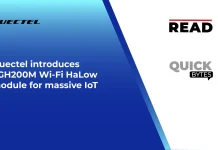Akeso, Inc. announces that the Ligufalimab (CD47 monoclonal antibody, research and development code: AK117, the novel immuno-oncology drug independently developed by the Company) and Ivonescimab (PD-1/VEGF bi-specific antibody, research and development code: AK112) has obtained approval from the Center for Drug Evaluation (CDE) of the National Medical Products Administration of the People’s Republic of China (”China”) to initiate a phase II clinical trial with chemotherapy as first-line therapy for unresectable locally advanced or metastatic triplenegative breast cancer.
Also Read: Venus Medtech Concludes Acquisition of 100% Equity Interest in Cardiovalve
This clinical trial is an open and multi-center phase II clinical trial, which plans to include patients who have not received systemic anti-tumor therapy, are not suitable for radical surgical resection or local therapy, or subjects with locally advanced or metastatic triple-negative breast cancer whose disease progresses after surgical resection or local therapy.
Breast cancer is the most prevalent malignant tumor in women worldwide and in China, among which triple-negative breast cancer (that is, negative for progesterone receptor, estrogen receptor and human epidermal growth factor receptor 2) is highly aggressive and has a high recurrence rate, with a relatively poor prognosis. It is the subtype with the highest recurrence rate and mortality in breast cancer, accounting for approximately 15% of all breast cancers.
Related studies have shown that the mechanisms by which tumor cells evade the innate and adaptive immune systems play a key role in the occurrence and development of recurrent and/or metastatic tumors. An important mechanism of immune escape in triple-negative breast cancer is the expression of CD47. CD47 inhibits the phagocytosis of macrophages by releasing a ”don’t eat me” signal, and at the same time suppresses adaptive immunity by interacting with dendritic cells.
Under the tumor microenvironment, there is a strong correlation between VEGF and PD-1 expression. Therefore, the use of a bi-specific antibody to block PD-1 and VEGF simultaneously can provide a type of drug with more targets in the tumor microenvironment.
Related studies have also shown that the up-regulation of CD47 can inhibit the phagocytosis of macrophages and the anti-tumor effect of VEGF/VEGFR inhibitors. It can also induce the up-regulation of CD47 during anti-angiogenesis therapy. Therefore, blocking both VEGF and CD47 can effectively inhibit the immunosuppressive pathway induced by antiangiogenesis therapy (up-regulation of CD47) while enhancing the phagocytosis of macrophages to improve the anti-tumor efficacy.
Therefore, the combination therapy of Ivonescimab and Ligufalimab is expected to activate both innate and adaptive immune pathways and enhance the targeted recognition of tumors by the immune system, which can create a synergy effect of immunity, anti-angiogenesis and chemotherapy. It is expected to achieve better anti-tumor effects in subjects with advanced triple-negative breast cancer






